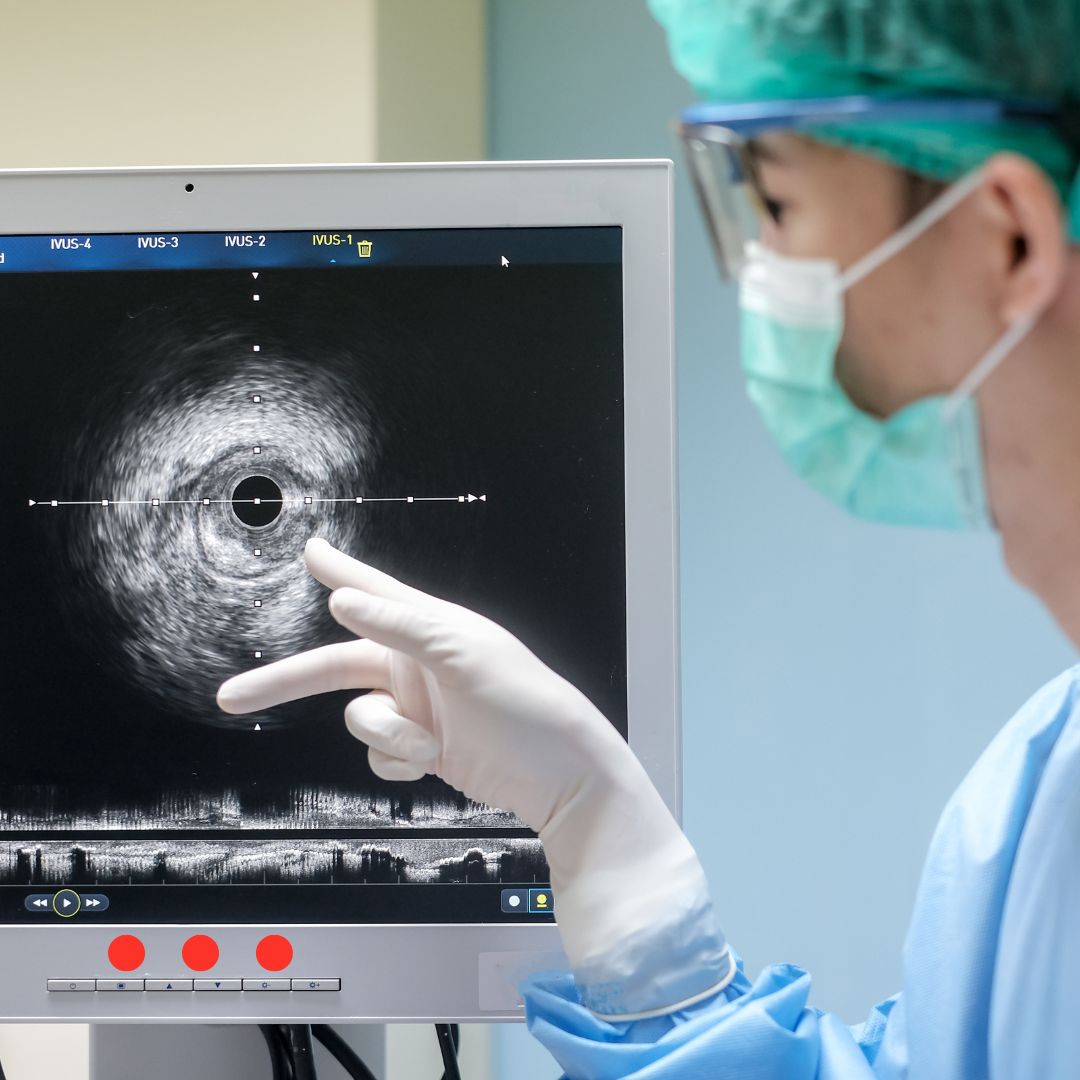
Cardiac imaging is a critical component of heart disease management, providing detailed images of the heart and its structures. These imaging techniques are essential for diagnosing, monitoring, and guiding the treatment of various cardiovascular conditions. Advances in cardiac imaging technology have significantly improved the accuracy and effectiveness of heart disease diagnosis and management, enabling healthcare professionals to provide better care for their patients.
At Vita Diagnostics, we offer comprehensive cardiac imaging services to our patients in Ernakulam and Thrissur. Our advanced cardiac MRI and CT technology ensures high-quality imaging and precise diagnostics. Our experienced team of cardiologists and radiologists is dedicated to delivering the highest standard of care, helping patients manage their heart health effectively. By understanding the significance of cardiac imaging, patients can appreciate the role of these advanced techniques in maintaining their cardiovascular health.
Cardiac Magnetic Resonance Imaging (MRI) is a powerful tool in heart disease management, providing detailed images of the heart's structure and function. Unlike other imaging techniques, cardiac MRI does not use ionizing radiation, making it a safer option for patients requiring repeated imaging. Cardiac MRI is particularly useful in assessing myocardial viability, detecting heart muscle damage, and evaluating heart function.
At Vita Diagnostics, our advanced cardiac MRI technology offers high-resolution images and comprehensive assessment of cardiac conditions. Our cardiac MRI services include evaluation of cardiomyopathies, congenital heart diseases, and assessment of myocardial perfusion and viability. These detailed images help guide treatment decisions, monitor disease progression, and assess the effectiveness of therapeutic interventions. By leveraging the capabilities of cardiac MRI, we ensure that our patients receive accurate and comprehensive heart disease management.
Cardiac Computed Tomography (CT) is another essential tool in heart disease management, providing detailed cross-sectional images of the heart and its blood vessels. One of the primary uses of cardiac CT is in coronary artery imaging, where it helps detect and assess the severity of coronary artery disease. Cardiac CT is also used to evaluate other cardiac structures, such as the heart valves and pulmonary veins, providing valuable information for diagnosis and treatment planning.
At Vita Diagnostics, our advanced cardiac CT technology offers high-quality imaging with reduced radiation exposure. Our cardiac CT services include coronary CT angiography (CTA), calcium scoring, and assessment of cardiac anatomy and function. These detailed images help identify blockages, assess the extent of atherosclerosis, and guide interventional procedures such as angioplasty and stent placement. By offering comprehensive cardiac CT imaging services, we ensure that our patients receive accurate and timely diagnostics for effective heart disease management.
Regular cardiac imaging screenings are essential for individuals at risk of heart disease, helping to detect potential issues early and monitor existing conditions. Early detection of heart disease allows for timely intervention and better management of the condition, reducing the risk of complications and improving long-term outcomes. Guidelines for cardiac imaging screenings vary depending on individual risk factors, such as age, family history, and lifestyle factors.
At Vita Diagnostics, we emphasize the importance of personalized cardiac imaging screening plans tailored to each patient's unique risk factors and health history. Our comprehensive cardiac imaging services include cardiac MRI, cardiac CT, and echocardiography, ensuring thorough and accurate assessment of heart health. By prioritizing regular cardiac imaging screenings, patients can detect potential issues early and take proactive steps to maintain their cardiovascular health and well-being.